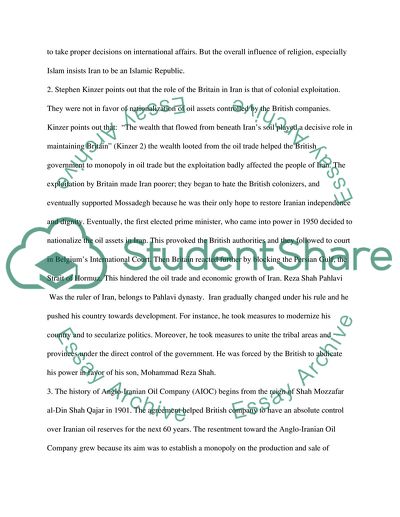Cite this document
(Analysis of an American Coup and the Roots of Middle East Terror Book Assignment, n.d.)
Analysis of an American Coup and the Roots of Middle East Terror Book Assignment. Retrieved from https://studentshare.org/military/1552367-answering-6-questions-based-on-the-book-all-the-shahs-men
Analysis of an American Coup and the Roots of Middle East Terror Book Assignment. Retrieved from https://studentshare.org/military/1552367-answering-6-questions-based-on-the-book-all-the-shahs-men
(Analysis of an American Coup and the Roots of Middle East Terror Book Assignment)
Analysis of an American Coup and the Roots of Middle East Terror Book Assignment. https://studentshare.org/military/1552367-answering-6-questions-based-on-the-book-all-the-shahs-men.
Analysis of an American Coup and the Roots of Middle East Terror Book Assignment. https://studentshare.org/military/1552367-answering-6-questions-based-on-the-book-all-the-shahs-men.
“Analysis of an American Coup and the Roots of Middle East Terror Book Assignment”, n.d. https://studentshare.org/military/1552367-answering-6-questions-based-on-the-book-all-the-shahs-men.


